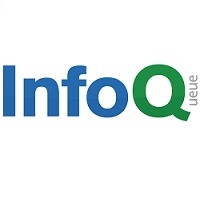
MMS • RSS
Article originally posted on InfoQ. Visit InfoQ

Over 30 Java community leaders have released an open letter clarifying the available support options and Java builds going forwards.
The document explains in detail the available free and paid-for support options, both from Oracle and from other suppliers.
InfoQ has previously reported on Oracle’s changes to the Java support model but there has remained an atmosphere of uncertainty, with developers left in the dark about the roadmap for Java support, especially for Java 8.
The letter explains the differences between the paid-for Oracle JDK and the GPL-licensed (and potentially zero cost) OpenJDK options.
The OpenJDK community creates and maintains the (GPLv2+CE) open-source Reference Implementation (RI) of the Java SE Specification as governed by the Java Community Process (JCP) and defined through an umbrella Java Specification Request (JSR) for each feature release.
There are implementations of Java SE from various providers (such as Azul, Eclipse, IBM, Red Hat, Oracle, SAP, and others), the most common of these being Oracle JDK.
Both Java 8 and 11 are discussed in the letter with a range of offerings available from different suppliers.
Oracle JDK 8 is undergoing the “End of Public Updates” process, which means there are no longer free updates for commercial use after January 2019. However, since Java SE 9, Oracle is also providing Oracle’s OpenJDK builds which are free for commercial use, and there are free OpenJDK builds from other providers like AdoptOpenJDK, Azul, IBM, Red Hat, Linux distros et al.
The Long-Term Support (LTS) concept and releases are also explained in depth – essentially that Java will have a new release every 6 months, but every 3 years a release will be designated as LTS, starting with Java 11. These LTS releases will have Oracle paid-for support available for an extended period of time. There is also the expectation that other vendors will also offer support for LTS releases for longer than the standard 6 months life of a normal feature release binary.
The document also contains an explicit description of what developers should do to obtain zero-cost, supported Java binaries under the “I Want Free” section headings in the short form of the document.
NOTE: The author is a signatory to the open letter.